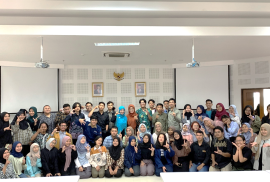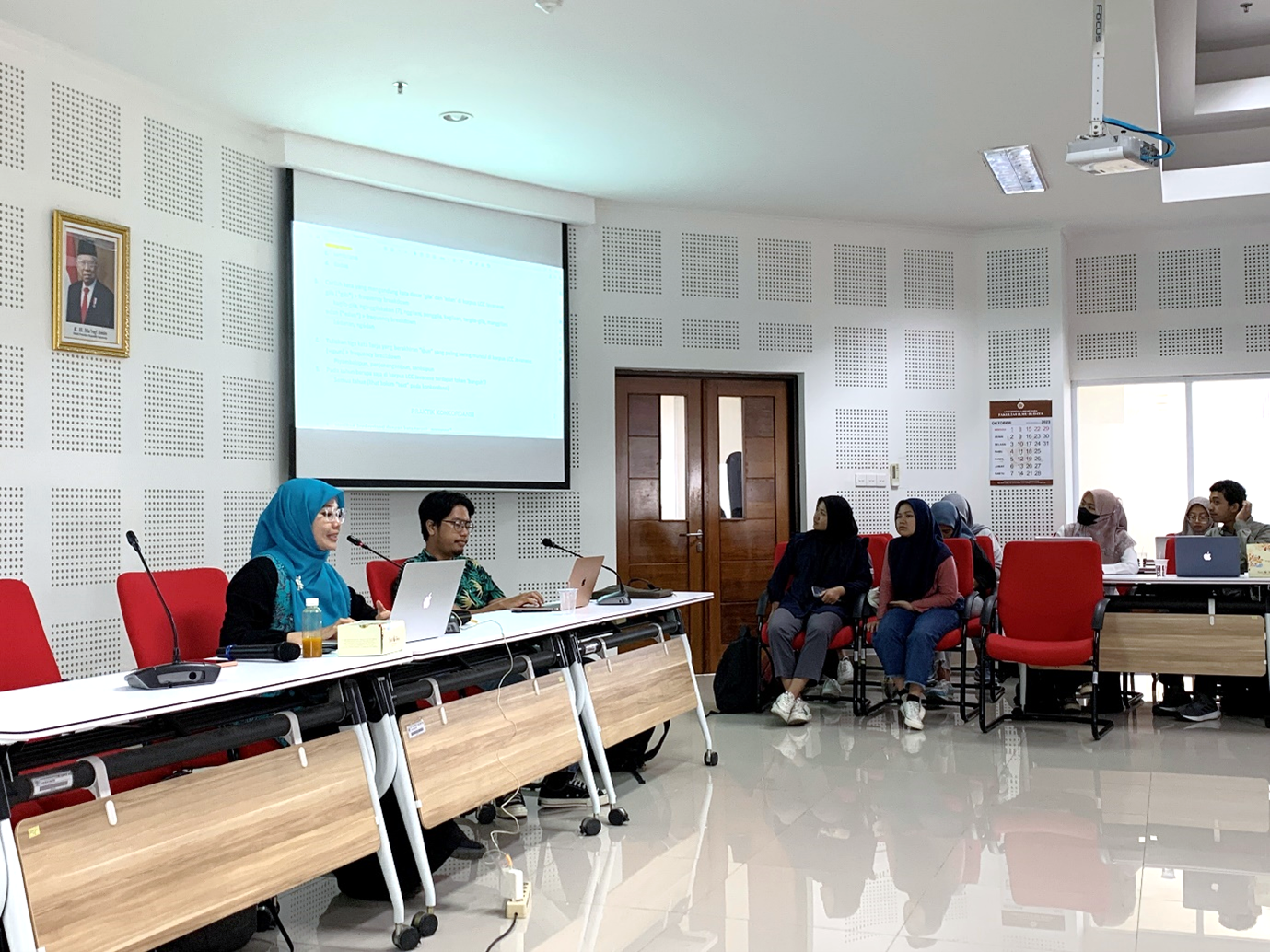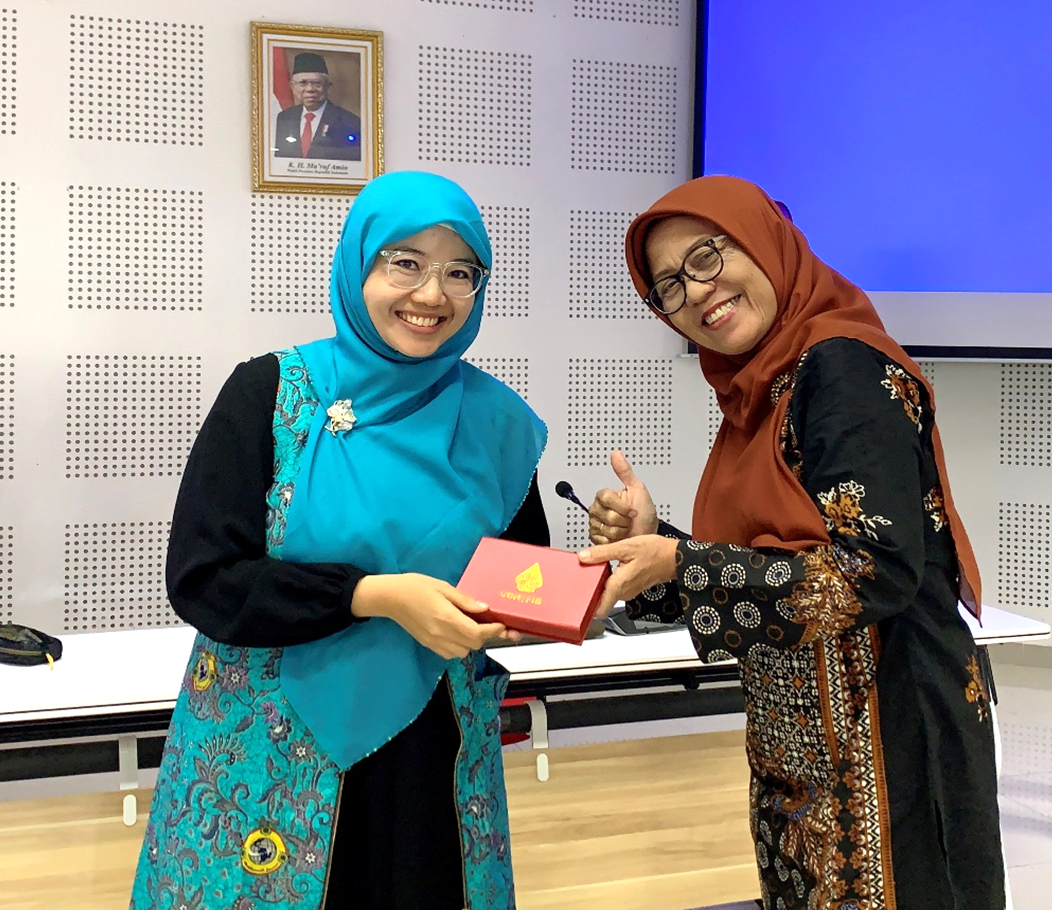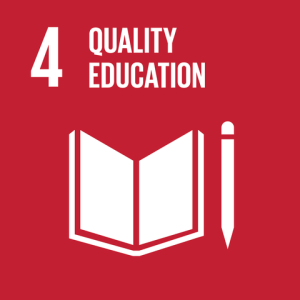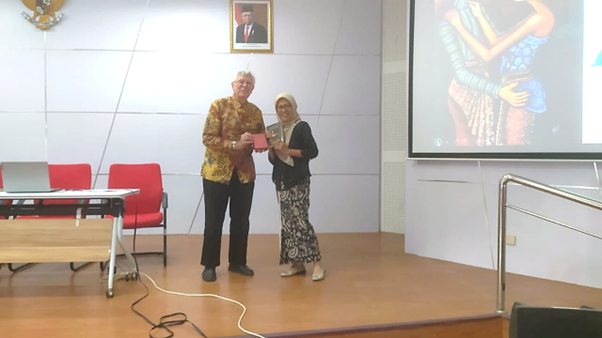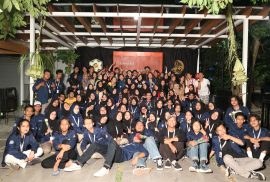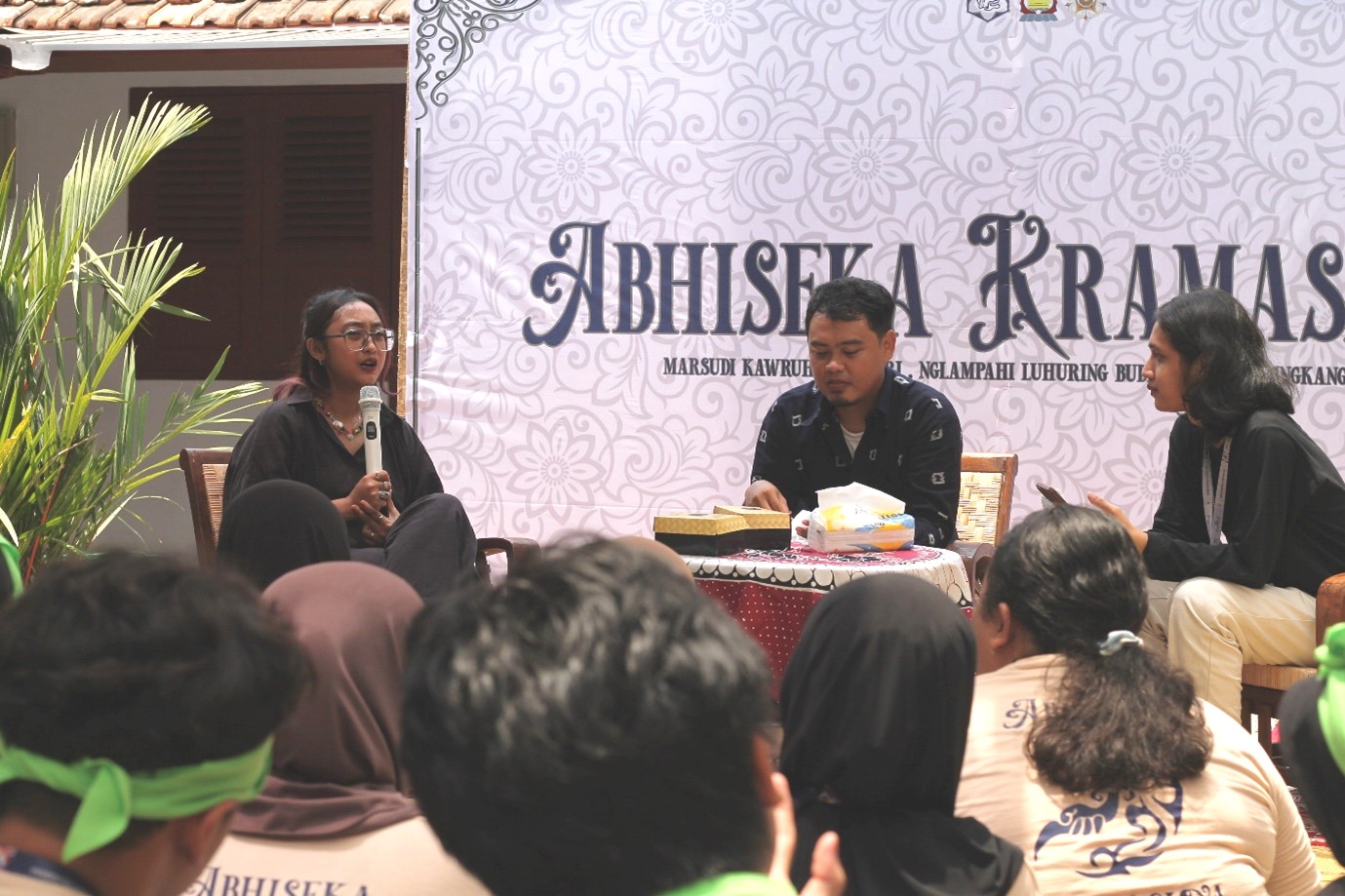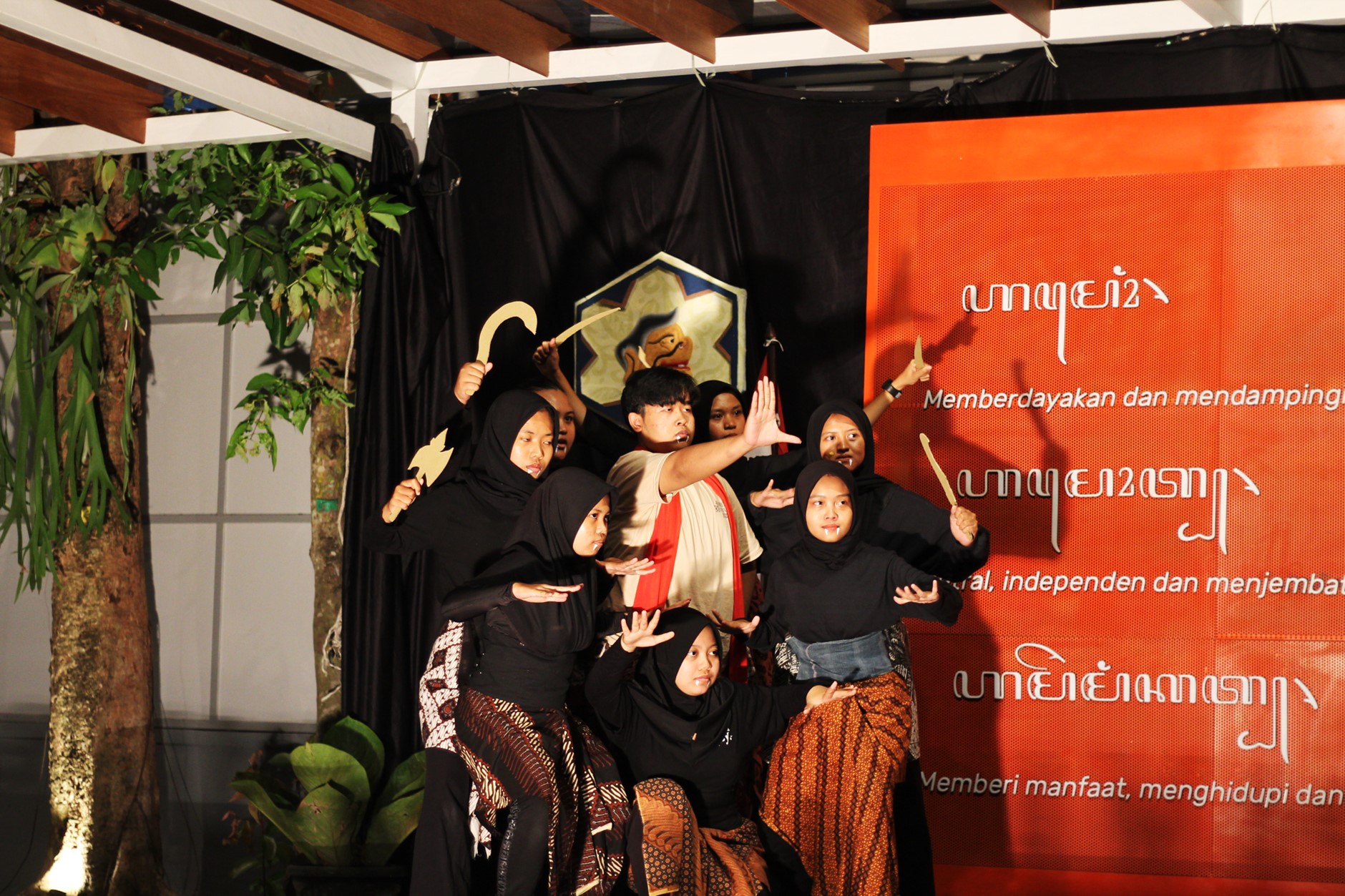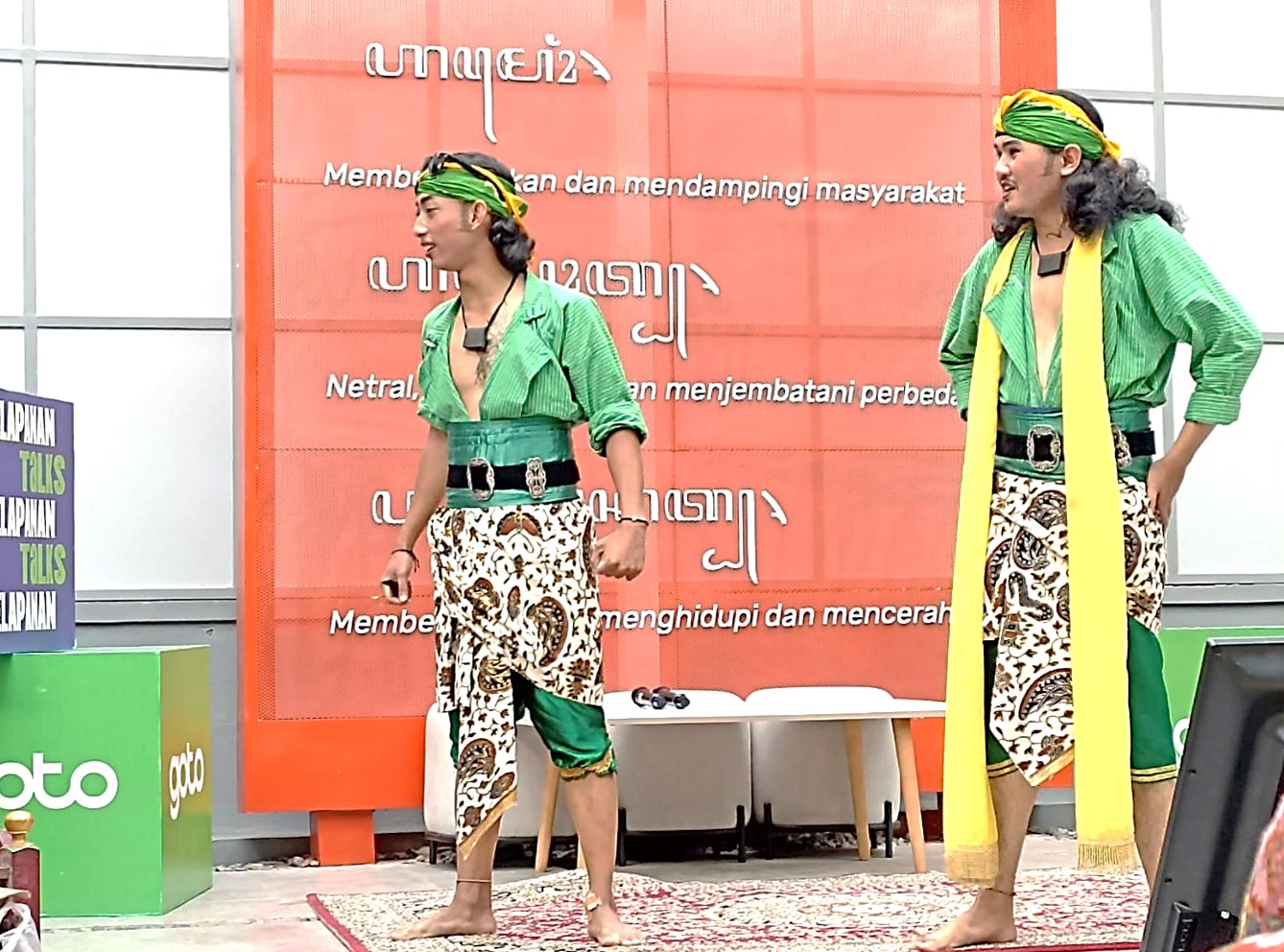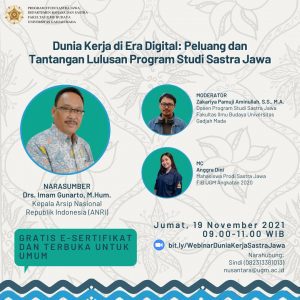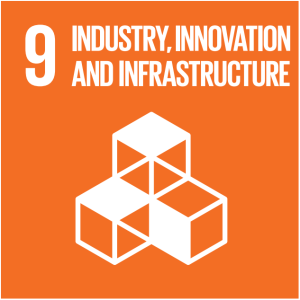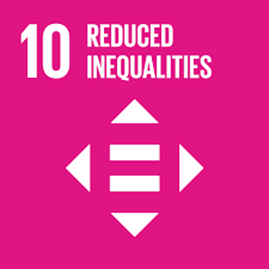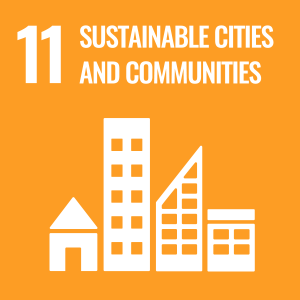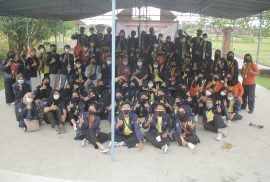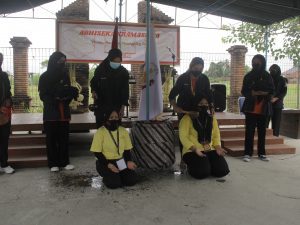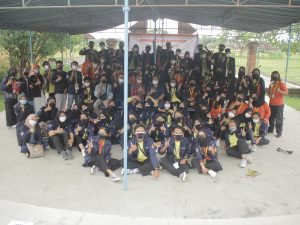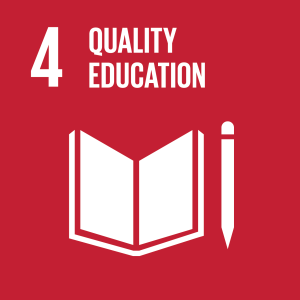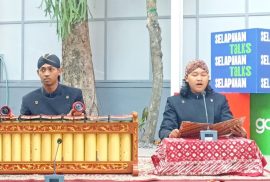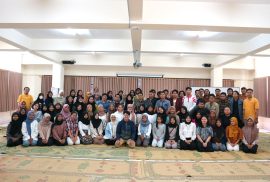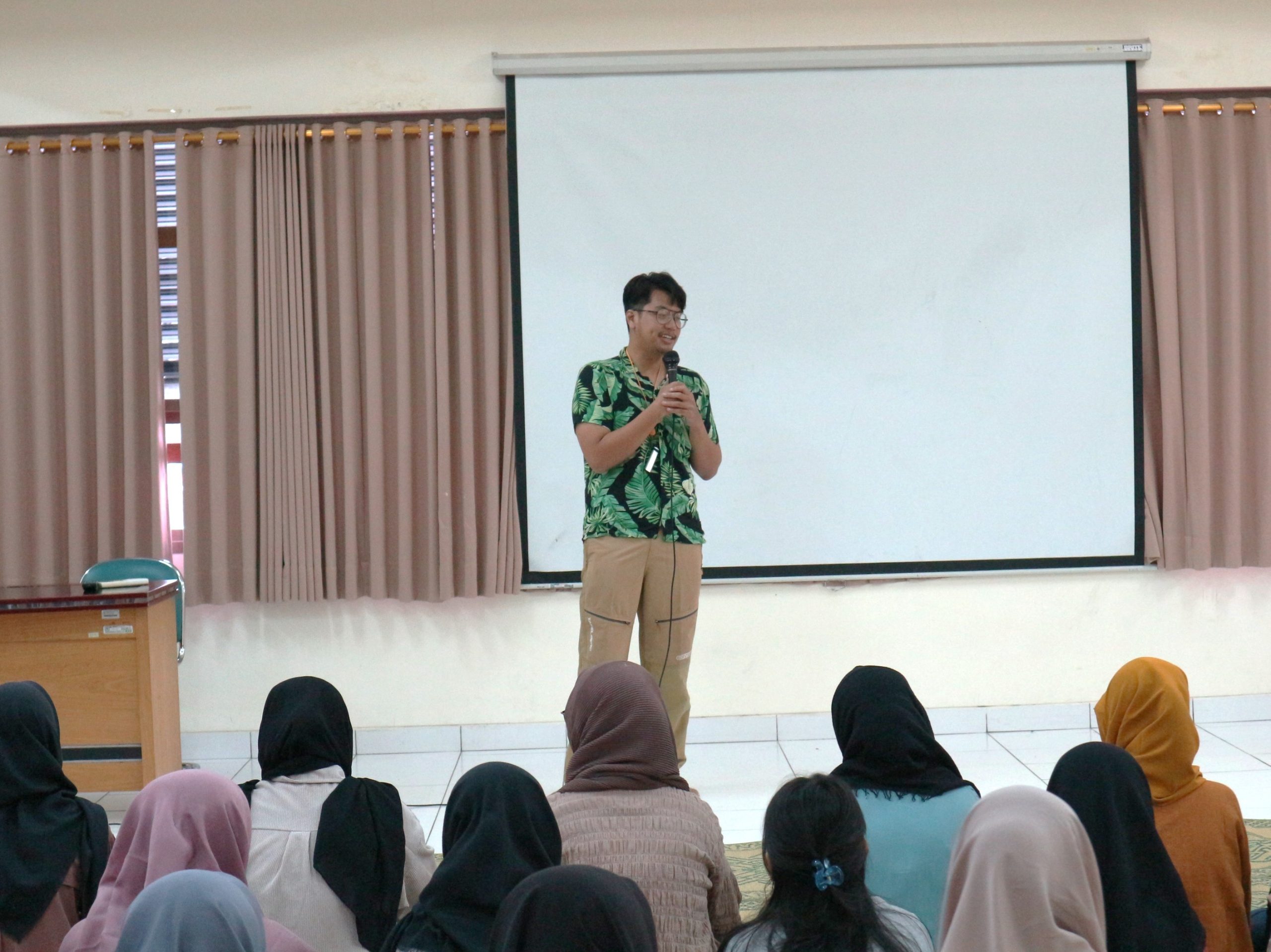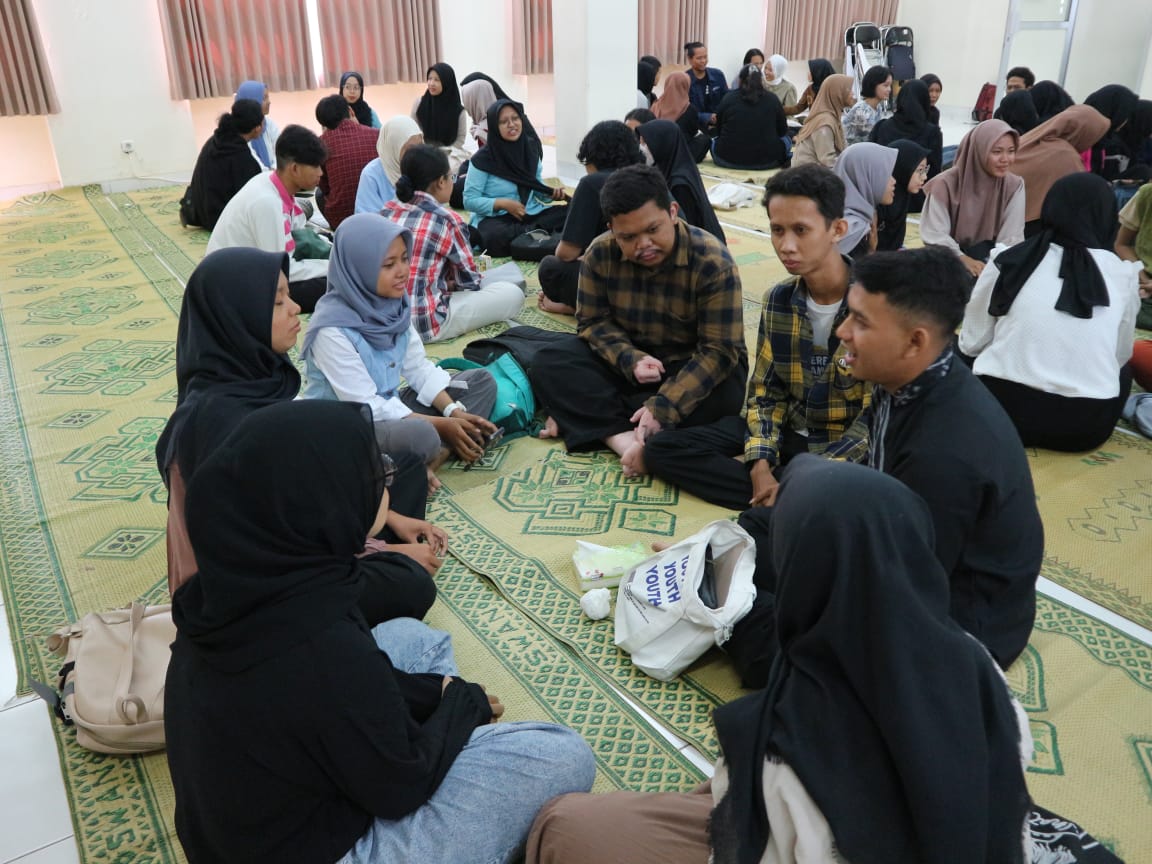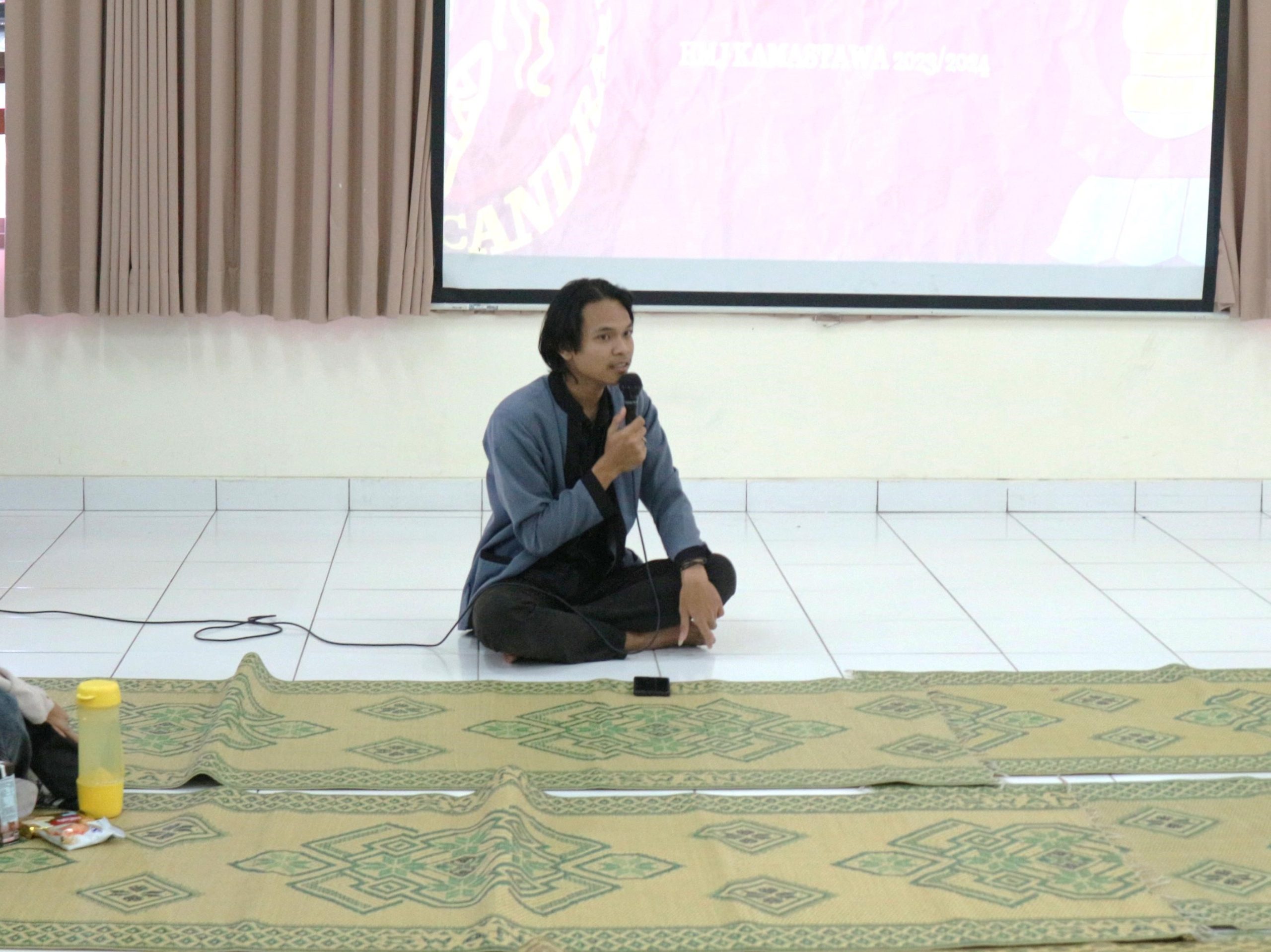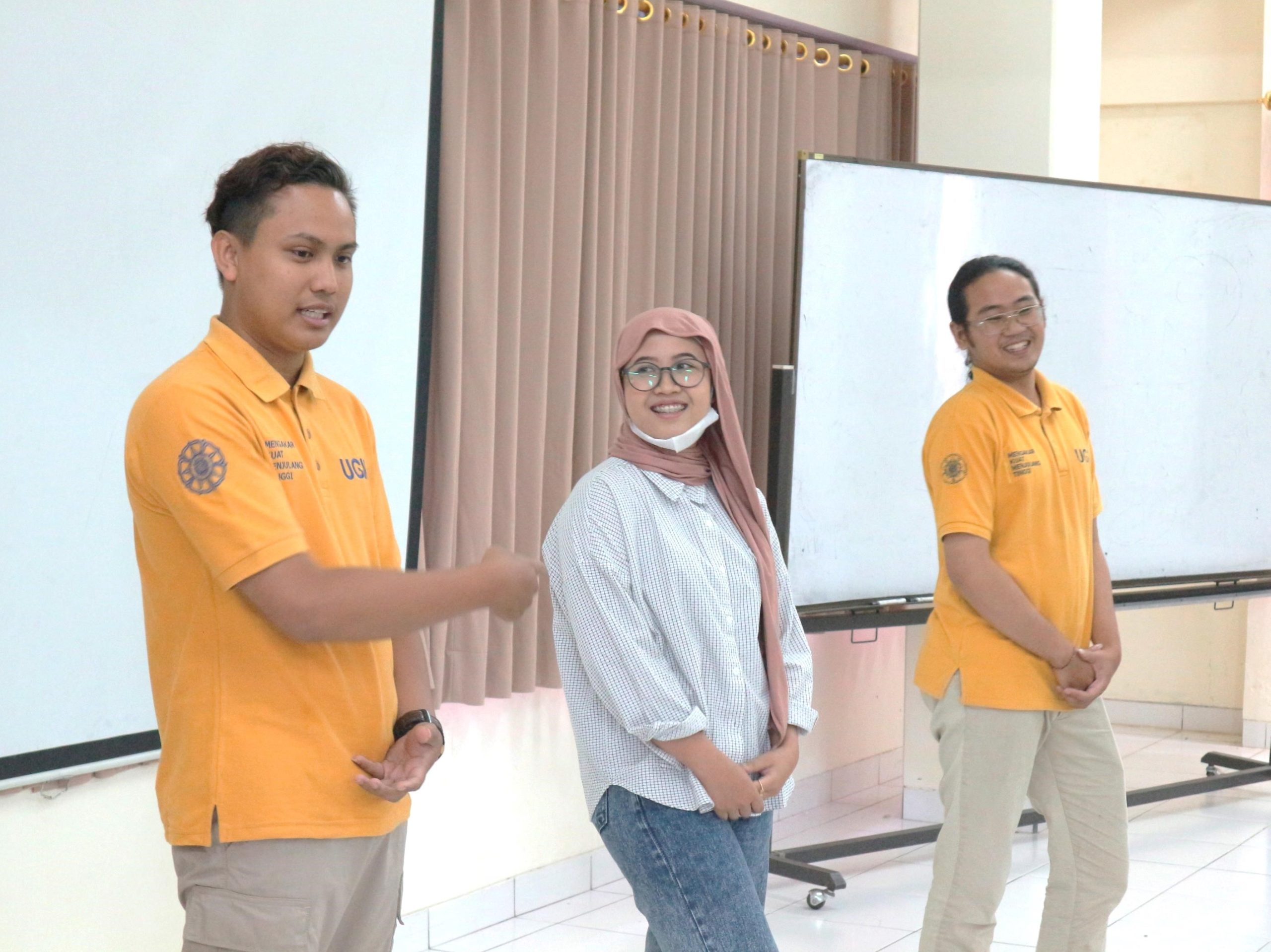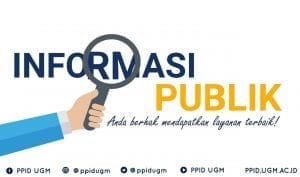- Home
- News
- page. 8
News
Dr. George Quinn, Senior Lecturer at Australian International University Canberra, delivered a public lecture entitled “Brother-Sister Love in Modern Javanese Literature: Cangkriman for Literary Researchers”
College StudentNewsSDGS Tuesday, 17 October 2023
Yogyakarta (17/10/2023) - A public lecture entitled "brother-sister love in modern Javanese literature: cangkriman for literary researchers" has been organized by the Javanese Language, Literature and Culture Study Program, Faculty of Cultural Sciences, Universitas Gadjah Mada (UGM). The public lecture was held on Monday (16/10/2023) at the Auditorium, Soegondo Building 7th floor, Faculty of Cultural Sciences, UGM, and was attended by students of the Javanese Language, Literature, and Culture Study Program, and other participants interested in the topic.
The public lecture presented Dr. George Quinn, senior lecturer of Australian International University Canberra, as the speaker, Rudy Wiratama, S.I.P, M.A., lecturer of Javanese Language, Literature and Culture Study Program UGM, as the moderator, and Nurma Aisyah, student of Batch 2022, as the announcer.
On this occasion, Dr. George Quinn explained about an incest situation in novels of Modern Javanese Literature from 1939 to 2021. An interesting thing presented by Dr. George Quinn is that the love of these siblings is like the love of husband and wife.
"When the position of the character and his partner as brother and sister is known, it is as if they are okay and their relationship as lovers must be reformulated into a brother-sister relationship. Thus, because brother-sister sexual love clashes with the prohibition of incest, a husband and wife who model the "perfection" of brother-sister love, which contains psychological and religious tensions, will not be possible," explained Dr. George Quinn.
Dr. George Quinn (on the right) delivering his presentation.
he seemingly taboo topic of discussion actually aroused great curiosity in the participants. This was evidenced by the various questions asked to Dr. George Quinn in the discussion session, so that this public lecture successfully became a forum for discussing the proposed topic.
After the discussion session, Dr. Daru Winarti, M.Hum, as the Head of the Javanese Language, Literature and Culture Study Program, handed over a book as a souvenir. Dr. George Quinn also gave a souvenir in the form of a book to Dr. Daru Winarti, M.Hum. Afterwards, a documentation session was held to capture the moment of togetherness.
Gift giving by Dr. George Quinn (left) and Dr. Daru Winarti, M.Hum (right)
Rudy Wiratama, S.I.P., M.A., expressed his hope that the public lecture in the afternoon would inspire participants who wanted to research the topic in the future. "We hope that this public lecture will be a prank for all of you, so that it can inspire and bridge research related to Javanese Literature in the future".
ABHISEKA KRAMASISYA 2023: MARSUDI, NGLAMPAHI, MURAKABI
College StudentNewsStudent Monday, 16 October 2023
Abhiseka Kramasisya is a tradition held annually to inaugurate new students of the Javanese Literature Study Program. On Saturday, October 14, 2023, Abhiseka Kramasisya was attended by 47 new students of the Javanese Language, Literature and Culture Study Program. The theme carried out in the 2023 Kramasisya Abhiseka activity was "Marsudi, Nglampahi, Murakabi". The theme was inspired by a Javanese saying that has a positive meaning in it.
"Marsudi" means uniting towards a harmony and harmony. In this case, new students are expected to put aside all differences and be determined to unite into a family of Javanese Language, Literature and Culture students who are aligned in their goals, namely, seeking and collecting knowledge. "Nglampahi" means living knowledge for yourself. By joining students to become part of the Javanese Language, Literature and Culture Study Program at Gadjah Mada University, it is hoped that they can provide goodness for themselves. "Murakabi" means that the knowledge owned by oneself is useful for others so that it is part of the activities to maintain and preserve the noble values of Javanese culture and be able to continue efforts to maintain the existence of Javanese culture.
Before the series of activities of Abhiseka Kramasisya 2023 was carried out, a technical meeting was held by the committee to introduce participants, namely students of class 2023, about Abhiseka Kramasisya. In addition, the 47 participants have been divided into four teams, namely Saptaarga, Indrakila, Talkanda, and Kendhalisada. The names of the four teams are taken from the names of the pandhita's hermitages in the puppet characters.
The series of activities of Abhiseka Kramasisya 2023 began with registration, "Sesareng" or outbound, "Sartaka" or alumni talk show, "Semedi" or study program seminar, inauguration, "Kala Nrtya" or art performance, "Abhimata" or awards, and closing. The registration was held from 06.30 AM-07.20 AM WIB. After that, it was followed by "Sesareng" or outbound which was held at Greenland FIB UGM. The "Sesareng" activity was full of fun because it was filled with several games such as sarong volleyball, water relay, and so on. The Sesareng series lasted until 09.00 AM WIB.
The next activity was the opening of the series of Abhiseka Kramasisya 2023 activities which took place at the Center for Javanese Studies, Gadjah Mada University (PUSAKA JAWA UGM). After that, it was continued with "Sartaka" or a talk show with alumni of the Javanese Language, Literature and Culture Study Program. The event was held at 10.10 AM WIB-11.45 AM WIB. There were two alumni who shared their experiences, lecture tips, and an overview after graduating from the world of lectures, namely Vanis, S.S., and Mahmud Hidayat, S.S.
"Sartaka" Session
The next series of events was "Semedi" or study program seminars. The "Semedi" session took place at 13.00 WIB-14.50 WIB. In the seminar, the participants got a deeper understanding of the three specialization fields in the Javanese Language, Literature, and Culture Study Program, namely philology, linguistics, and literature. The three fields of specialization were explained by the lecturers from each of the specialization fields. The lecturers who attended the event included Dr. Daru Winarti, M.Hum., Dr. Djarot Heru Santoso, M.Hum., Dr. Sri Ratna Saktimulya, M.Hum., Dr. Arsanti Wulandari, M.Hum., R. Bima Slamet Raharja, S.S., M.Hum., Nurmalia Habibah, S.S., M.A., and Imam Prakoso, S.S., M.A. Various questions were expressed by the participants to the lecturers, illustrating their deep curiosity about each of the three specializations.
"Semedi" Session
After that was the main event of the Kramasisya Abhiseka, namely the inauguration. The inaugural session took place from 03.20 PM WIB to 05.00 WIB and was carried out the "Siraman"procession. Participants get their turn to undergo the procession. With the implementation of the procession, participants have officially become part of the Javanese Language, Literature and Culture Study Program Family. In addition, the participants also received the Javanese Literature Student Association (HMJ KAMASTAWA).
"Siraman" Prossesion
The next session was "Kala Nrtya" or art performance which was held at 06.20 PM WIB-07.30 PM WIB. In this session, the participants who had become four teams had to present a performance, either drama, music, dance, etc. The atmosphere at the art performance was very lively and warm, and the performances of the four teams were very mesmerizing. After "Kala Nrtya", the next session was "Abhimata" or awarding. The Abhimata session contained several nominations, including the most exciting group, the most compact group, and other nominations. The last session was the closing session which ended with a group photo, with the intention of capturing the moment of togetherness.
"Kala Nrtya" Session
With the implementation of the 2023 Kramasisya Abhiseka series, it is hoped that new students of the Javanese Language, Literature and Culture Study Program can love the country more and participate in the preservation of the archipelago's culture, especially Javanese culture. Students who have been inaugurated are expected to be able to channel their concern for the culture of the archipelago through educational activities, research, and community service so as to create superior student characters, achieve, dignify, and participate in improving the quality of education in Indonesia.
Selapanan Talk #2 PUSAKA JAWA was enlivened with Banyumasan Art Performance by PASEBAN and Students of Javanese Language, Literature, and Culture Study Program
College StudentNewsSDGS Monday, 16 October 2023
Yogyakarta (16/10/2023) - The Selapanan Talk #2 event held on Friday (13/10/2023) by PUSAKA JAWA UGM was warm and lively. Not only because of the interesting topics and extraordinary speakers, but also because of the interesting and enchanting art treats. The art that captivated the participants was none other than Banyumasan art.
Kethoprak performance
The Banyumasan art was performed by PASEBAN (Paguyuban Seni Banyumasan) in which students of the Javanese Language, Literature and Culture Study Program took part. They are Yanuar Agung Nugroho (2023) as a Calung player, and Taruna Dharma Jati (2019) as a dancer and performer. The arts performed included Banyumasan gendings, such as ricik-ricik Banyumasan, and eling-eling Banyumasan, kethoprak, and lengger dance.
Lenggeran performance
The Selapanan Talk event is a routine activity held every 35 days. The theme of Selapanan Talk #2 was "Dialogue of Taste, Transformation of Time" presented by two main speakers, Tania Kristi, S.S., culinary practitioner, Master Student of Faculty of Arts UGM, and researcher at the Center for Cultural Studies UGM, and Saiful Bachtiar, Head of Public Policy & Government Relations Central & West Java GOTO. The event presented a discussion on how the journey of food can be obtained by humans, from the discovery of fire, the presence of various kinds of processing, to the convenience presented through online applications.
Webinar “Digital Era Job Market: Opportunities and Challenges for Javanese Literature Graduates”
College StudentNewsSDGSStudentStudent's ActivityStudent's Work Wednesday, 4 October 2023
On Friday, November 19, 2021, at 09:00 AM WIB, the Javanese Literature program at Universitas Gadjah Mada organized a webinar aimed at Javanese Literature students, particularly alumnus. The webinar was titled "Digital Era Job Market: Opportunities and Challenges for Javanese Literature Graduates" and featured an experienced speaker, Drs. Imam Gunarto M.Hum, is an alumnus of Sastra Nusantara (now known as Javanese Literature) at Universitas Gadjah Mada and currently serves as the Head of the National Archives of the Republic of Indonesia (ANRI).
During the webinar, Mr. Imam explained that in the current era, Javanese Literature graduates can pursue various career paths. They are not limited to being teachers or researchers; as Mr. Imam himself has proven, Javanese Literature graduates can also become leaders. He emphasized that Javanese Literature graduates should possess a unique perspective compared to others and confidence in their skills is also crucial to support their expertise.
Another crucial aspect to consider is preparing for the 5.0 society era. Careful planning from the beginning is essential to face any future challenges that may arise. Therefore, to achieve the desired career goals, mastery of interdisciplinary knowledge is also vital.
The ongoing pandemic has significantly affected job opportunities for the public. The consequences of the pandemic are evident, with many people losing their jobs due to the prevailing difficult circumstances. As a result, having skills is indispensable to thrive in an increasingly competitive job market.
In the "Digital Era Job Market" webinar, Mr. Imam also highlighted various challenges that need to be addressed at present. These challenges include the work ecosystem, deregulation, debureaucratization, new work formats, global talent, competition gap between university graduates and the job market, individual capacity, and active learning in training systems.
Therefore, through this webinar, Mr. Imam conveyed a message to the younger generation, especially Javanese Literature graduates, to pay attention to their performance and capacity, adopt a positive view of the world, and continuously strive to improve their skills (determining what they do) to support their career growth in the future.
Abhiseka Kramasisya 2021
College StudentNewsSDGSStudentStudent's ActivityStudent's Work Tuesday, 3 October 2023
Abhiseka Kramasisya is an inauguration event for new students of the Javanese Literature Study Program. In 2021, the event was held in October and was attended by 35 new students of the Javanese Literature Study Program. This year's Abhiseka Kramasisya event carries an interesting theme, namely "Manata, Marsudiya, Manunggaling Asta".
The meaning of the theme above is "Manata" which means organizing or making preparations, both setting goals or preparing oneself (mentally and physically), as well as preparing plans.
"Marsudiya" is a mandate that we try our best to achieve the desired goals. Don't give up and give up easily even though you are going through obstacles in the process that you are going through.
Meanwhile, "Manunggaling Asta" means joining hands which has the meaning of praying. Through prayer we can surrender everything we have done and fully surrender to God for the final results we receive. "Manunggaling Asta" can also mean joining hands. A figure of speech which means to strengthen the family, either with younger or older people. In addition, we can also refer to the word “manunggal” which means one, and the word “asta” which means two as sengkalan for the year 21 or 2021.
The Abhiseka Kramasisya program was divided into three series of events, namely the "Nglaras Memitran and Study Program Seminar" which was held on October 23, 2021, followed by the "Nglaras Karsa" event which was held on October 24, 2021, and ended with the main event, namely "Inauguration of New Students" on October 30, 2021.
The implementation of the first series of activities began with the opening of the event by the presenter followed by the inauguration of the opening of the activities by the Head of the Javanese Literature Study Program, Dr. Daru Winarti, M.Hum. Then, continued with "Nglaras Karsa" which is an introductory activity, both from new students and the lecturers and event committee. After that, it was closed with the last event "Seminar Study Program", namely the presentation of three specializations in Javanese Literature by Dr. Hendrokumoro, M. Hum. (majoring in linguistics), Dr. Sri Ratna Saktimulya, M.Hum. (majoring in philology), and Dr. Wisma Nugraha Christianto R., M.Hum. (literary major). The series of activities on the first day were carried out online via Zoom Meeting.
The implementation of the second day's activities began with the opening of the activity by the presenter. After that, it was followed by the "Nglaras Karsa" activity, which was a talk show with Javanese Literature alumni, namely Fajar Wijanarko, S.S. and Kezia Permata S.S. The two alumni gavesharing experience as welltips The world of lectures is very interesting to follow. The second day of the event was also held online via zoom meeting.
Meanwhile, the series of events on the third day were carried out offline and in collaboration with the Tembi Rumah Budaya Museum. The implementation of the event on the third day began with an opening ceremony led by the chief executive, namely Amabilita C. S. Then, it was continued with a museum tour guided by Tembi Rumah Budaya Museum officers. The event continued with activitiesmini games as well as the main event, namely the inauguration of new students. After that, it was continued with an art appreciation performance by Javanese Literature Class 2021 friends, giving impressions of messages and closing with a group photo session.
The entire series of Abhiseka Kramasisya events for three days is expected to provide learning and a good impression on Javanese Literature class 2021 friends. With the confirmation of Javanese Literature class 2021 friends as part of the Javanese Literature Student Family (KAMASTAWA), one day they will be able to dynamically and process together to become quality students.
In September 2021, the Javanese Literature study program will hold a public lecture on Sanskrit entitled "Short Course of Basic Sanskerta”. The lectures were held twice in September, namely on the 11th and 18th. The keynote speaker at the Sanskrit public lecture was Prof. Viroopaksha V. Jaddipal. He is a professor from India. The participants of the public lecture were the general public, especially students of the Javanese Literature study program.
Of the many materials related to Sanskrit, the material discussed at the meeting was the basic material of Sanskrit, two of which were the correct way of pronouncing Sanskrit words and knowledge of how to use the right words in composing a sentence. The public lecture was attended by a large number of participants. Although most of the participants were students from educational backgrounds in Javanese literature, there were also several participants from outside the field of Javanese literature.
Through these public lectures, many things can be learned. Not only about how to learn Sanskrit properly and correctly, but it also serves as a reminder for us that learning other languages is also necessary to support success in learning activities. As stated by one of the 2020 Javanese Literature study program students, Muhammad Ikhsan, he is happy to be able to learn Sanskrit with experts directly. Sanskrit, which was initially difficult, became understandable enough through this public lecture.
Multi-language ability is indeed not the main thing for the general public, but for the academic community, especially students who want to explore deeper knowledge, multi-language ability is very necessary. Through this ability, it will make it easier for students to study sources of knowledge in other languages, so that they will have an increasingly broad knowledge. In this case, multi-language is also useful as career support. The ability to multi-language is a separate consideration for companies providing work, especially in an increasingly modern era like today.
Based on the Decree of the Rector of Universitas Gadjah Mada Number 1286/UN1.P/KPT/HUKOR/2022, the Javanese Literature Study Program officially changed its name to the Javanese Language, Literature and Culture Study Program. The change in the name of the Study Program took place on Monday, November 28, 2022. However, the name change of the Study Program is not the first time this has happened. In its history, the development of the Javanese Language, Literature and Culture Study Program cannot be separated from the history of Universitas Gadjah Mada itself.
Referring to the article Knowing the Department of Literature and Culture of UGM by Prof. Dr. Darusprapta (1980), in 1946 there was a foundation called "Jajasan Balai Perguruan Tinggi Gadjah Mada" in Yogyakarta which had two parts:
- Faculteit Law and Economics, with Prof. Dr. Djaka Soetana as chairman.
- Faculteit Sastra, Filsafat, dan Kebudayaan, with Prof. Dr. R. Prijana as chairman.
At that time, the courses organized did not yet reflect certain majors. However, courses in New Javanese Language and Literature and courses in Old Javanese Language and Literature, which were combined with courses in Sanskrit, were offered.
However, from the end of 1946 to the end of 1949, lectures were stopped because Yogyakarta was occupied by the Dutch military. In late 1949, the "Jajasan Balai Perguruan Tinggi Gadjah Mada" merged with the College of Engineering in Jetis, Yogyakarta; the College of Medicine in Klaten; and the College of Political Science in Sala, to become Universitas Negeri Gadjah Mada. The merger was inaugurated on December 19, 1949, which was later determined as its anniversary date.
After the merger, the Faculty of Literature, Pedagogics, and Philosophy was inaugurated on January 23, 1951, with the following departments:
- Eastern Literature
- Western Literature
- History
- Earth Sciences
- Pedagogics
The lecture center was located in Bulaksumur, which later became SD / SMP IKIP Yogyakarta. In 1951-1955, the Faculty of Literature, Pedagogics, and Philosophy was chaired by Prof. Drs. Abdullah Sigit.
On 19-09-1955, to complete the composition of Gadjah Mada University, the Faculty of Literature, Pedagogics, and Philosophy then became:
- Faculty of Literature and Culture
- Faculty of Pedagogics
- Faculty of Philosophy
The Faculty of Letters and Culture building is centered at Dalem Wijilan, Yudanegaran 37, Yogyakarta. The Faculty of Literature and Culture was chaired by Prof. Dr. RMNg. Poerbatjaraka in 1955-1960, who was also the Chairman of the Faculty of Letters, Airlangga University (Udayana). The Faculty of Literature and Culture had the following departments:
- Eastern Literature
- Western Literature
- History
- Earth Science
In the Department of Eastern Literature, there are sub-majors of Indonesian Literature and sub-majors of Javanese Literature at the doctoral level which then in 1958/1959 the sub-major of Indonesian Literature became the Department of Indonesian Literature chaired by Prof. Drs. Siti Baroroh Baried, and the sub-major of Javanese Literature became the Department of Javanese Literature chaired by Dra. Sukesi Adiwimarta. At the doctoral level of the Javanese Literature Department, New Javanese expertise and Old Javanese expertise were opened. At that time, one student was enrolled in the Javanese Literature Department.
Prof. Dra. Siti Baroroh Baried lan became dean in 1962-1966 and the Department of Javanese Literature was chaired by Drs. M. Ramlan who was the first graduate of the Department of Eastern Literature, Faculty of Literature and Culture, Gadjah Mada University (1958).
In 1964, the Javanese Literature Sub-Department of the Eastern Literature Department graduated a bachelor and in the same year, the Javanese Literature Department changed its name to the Nusantara Literature Department in the hope that the range of knowledge that could be achieved would be wider. At the doctoral level, there are three fields of expertise in the Nusantara Literature Department, namely:
- Phlology
- Literature
- Lingustics
In 1965, the faculty building was moved from Dalum Wijilan Yudanegaran to Karangmalang (now IKIP Negeri Yogyakarta complex). In 1966, the Nusantara Literature Department graduated a bachelor with expertise in Javanese Kuna.
In 1967-1969, the Nusantara Literature Department was chaired by Prof. Dr. Darusuprapto, who was a graduate of the Eastern Literature Department (1964). In 1970-1971, the Nusantara Literature Department was chaired by Drs. Sumarti Suprayitna, a graduate of the Eastern Literature Department (1960) who focused her expertise on Old Javanese language and literature.
On July 1, 1970, the Faculty of Literature and Culture occupied a new building in Gadjah Mada University, Bulaksumur. In 1972-1975, the Department of Archipelago Literature was chaired by Drs. RS. Subalidinata, the first graduate of the Department (1969), who graduated a scholar with expertise in philology.
In the 1976-1977 management period with Dean Drs. Djoko Soekiman, and Head of Department Darusuprapta, the Nusantara Literature Department graduated four scholars. In the next management period, 1976-1979, with Dean Drs. Djoko Soekiman and 1980-1981 with Dean Prof. Dr. Sulastin Sutrisno, the Nusantara Literature Department was chaired by Dra. Sumarti Suprayitna.
The Nusantara Literature Department has been using the credit system since 1974. In 1980, the credit system for S1 and S2 programs began to be implemented with the following division:
- Bachelor Studies with 120 credits
- Bachelor (S1) with 160 credits
- Postgraduate (S2) with 194 credits
In the Bachelor study level (S1), there is a division of expertise in Ancient Java, Middle Java and New Java in the fields of Philology, Literature, and Linguistics.
Based on article 2 of the Decree of the Minister of Education and Culture of the Republic of Indonesia Number: 0553/0/1983 concerning Types and Number of Departments in Faculties within the University of Gadjah Mada, the Nusantara Literature Department was then officially renamed the Regional Literature Department.
In 2005, the Department of Regional Literature again changed its name to Nusantara Literature. This was followed by the change of KMSD (Keluarga Mahasiswa Sastra Daerah) to KAMASUTRA (Keluarga Mahasiswa Sastra Nusantara) on March 3, 2005 (admin, 2014). Evidence of these changes can also be found in the UGM Humanities Journal. On the back cover of the Journal of Humanities Volume 17, Number 1, February 2005, the department's name is still listed as Regional Literature. However, on the back cover of the Journal of Humanities Volume 17, Number 2, June 2005, the name of the department has changed to Nusantara Literature.
Based on Annex II in the Decree of the Rector of Universitas Gadjah Mada Number 437/P/SK/HT/2010 on the Arrangement and Reassignment of Permits for the Implementation of Study Programs at Universitas Gadjah Mada issued on July 5, 2010, the name "Sastra Nusantara" is still officially the name of the Department until November 20, 2012.
In an interview with Imam Prakoso, S.S., M.A., a lecturer in the Javanese Language, Literature and Culture Study Program with a focus on Linguistics, in 2010 a change in the title "department" to "study program" was made. In addition, he said that the study program was still named "Nusantara Literature Study Program", but there was an addition in the form of "Javanese Literature Study".
Based on appendix I in the Decree of the Rector of Universitas Gadjah Mada Number 1184/P/SK/HT/2012 concerning the Extension of Permits for the Implementation of Diploma IV, Undergraduate, and Professional Study Programs at Universitas Gadjah Mada issued on October 1, 2012, the name of the department "Nusantara Literature" was again extended until the period of September 30, 2016.
Then, in appendix II in the Decree of the Rector of Universitas Gadjah Mada Number 1718/UN1.P/SK/HUKOR/2017 concerning the Naming of Study Programs at Universitas Gadjah Mada, issued on November 16, 2017, the Nusantara Literature Study Program officially changed to the Javanese Literature Study Program.
Then, the change in the name of the Study Program was carried out again according to the information in the first paragraph, namely on November 28, 2022, according to attachment I in the Decree of the Chancellor of Universitas Gadjah Mada Number 1286/UN1.P/KPT/HUKOR/2022, the Javanese Literature Study Program officially changed its name to the Javanese Language, Literature and Culture Study Program.
Based on an interview with the Head of the Department of Language, Literature and Culture, Dr. Daru Winarti, M.Hum., the change in the name of the Javanese Literature Study Program to the Javanese Language, Literature and Culture Study Program is because the discussion of "Java" cannot only be related to literature, but cultural elements are also contained in it.
In line with this opinion, Rudy Wiratama S.I.P., M.A., a lecturer in the Javanese Language, Literature and Culture Study Program who focuses on the field of literary studies, explained that literary aspects cannot be separated from cultural aspects. In fact, according to him, there is a possibility for an additional field of study, namely the field of cultural studies.
For further explanation regarding the reasons, description, future outlook, and expectations of the Javanese Language, Literature and Culture Study Program, please visit the following link.
Timeline
The following is a timeline of the official name of this Study Program from time to time:
- Faculty of Literature, Pedagogics and Philosophy (March 03, 1946 – December 18, 1949)
- Department of Eastern Literature, Faculty of Literature, Pedagogics and Philosophy (2 January 23, 1951)
- Department of Eastern Literature, Javanese Literature Sub-Major at doctoral level, Faculty of Literature and Cultural Science (September 19, 1955)
- Department of Javanese Literature, Faculty of Literature, Pedagogics, dan Phylosophy (1958/1959)
- Department of Nusantara Literature, Faculty of Literature and Cultural Science (1964)
- Department of Local Literature, Faculty of Literature (1983)
- Department of Nusantara Literature, Faculty of Cultural Science (2005)
- Javanese Literature Program, Faculty of Cultural Science (November 16, 2017)
- Javanese Language, Literature, and Culture Program, Faculty of Cultural Science (November 22, 2022)
Source
Admin. (2014, March 3). Keluarga Mahasiswa Sastra Nusantara. FIB. https://fib.ugm.ac.id/keluarga-mahasiswa-sastra-nusantara.
Admin. (2023, July 31). Sejarah. FIB. https://fib.ugm.ac.id/profil/sejarah#:~:text=Fakultas%20Ilmu%20Budaya%20berdiri%20sejak,1949%20sampai%2013%20Agustus%201950).
Musliichah. (2016). Sejarah Fakultas Sastra dan Kebudayaan UGM 1946-1982. Khazanah, 9(2). 46-56.
Suprapta, Daru. (August, 1980). Mengenal Jurusan Sastra Nusantara, Sastra dan Kebudayaan UGM. Badrawada, I(12), 50-59.
Students of the Javanese Language, Literature, and Culture Program Present Sekar Dhandhanggula at Selapanan Talk#1 Pusaka Jawa UGM
College StudentNews Friday, 29 September 2023
Yogyakarta - On Friday (09/10/2023), two students from the Javanese Language, Literature, and Culture Program, namely Rafael Raga B. P. and Affan Akbar, performed the Macapat song sekar Dhandhanggula in the Selapanan Talk event organized by Pusat Kajian Jawa (the Center for Javanese Studies) or Pusaka Jawa UGM.
The Sekar Dhandhanggula sung by Rafael Raga B.P. is the 13th stanza from Serat Jampi Susah written by R. Pujaarja in 1918. The performance was accompanied by the gender musical instrument played by Affan Akbar, using the Slendro Pathet Sanga tuning. Here is an excerpt from Sekar Dhandhanggula in Serat Jampi Susah stanza 13:
Rèhning kabèh ihtiyaring jalmi
Ora kêna lamun dèn têtêpna
Kang têtêp amung kodraté
Pêrlu apa dèn ulur
Iku kêna kinarya mirit
Marang waris kang waras
Aja mèlu-mèlu
Anglalu luru sangsara
Saranané mung narima jroning ati
Ing mêngko arêp apa
After the performance, Rafael Raga B.P. explained the meaning contained in the song. He stated, "In this song, R. Pujaarja expresses his view that regardless of the results and predetermined fate, effort remains important in one's self-development and providing wisdom to others. The perspective on destiny is crucial because the weight of problems and difficulties in life can be overcome with a narima (Receiving) attitude."
Furthermore, he added, "R. Pujaarja then emphasizes a question, 'ing mêngko arêp apa?' (what will you do in the future?), which invites us to reflect and introspect while moving forward towards the future. With such an attitude, it is hoped that the Javanese community can nurture their mental health to achieve a good ultimate goal, which is khusnul khotimah (a good end of life), bali marang sangkan paaraning dumaid (returning to the Creator.)"
The Selapanan Talk event is a routine activity held every 35 days. On this occasion, the theme discussed was "Javanese-Style Mental Health," and it invited two main speakers, Rudy Wiratama, S.I.P., M.A., a lecturer from the Javanese Language, Literature, and Culture Program at UGM, and Salma Dias Saraswati, CEO and Co-Founder of Tenang. This event serves as an important platform for discussing and understanding Javanese values in giving meaning to the soul and its application to mental health issues, especially among today's younger generation.
First Gathering of Javanese Language, Literature, and Culture Students A.Y. 2022-2023
College StudentNewsStudent's Activity Friday, 29 September 2023
Yogyakarta - The Javanese Language, Literature, and Culture Program successfully organized the "First Gathering" event for students of the academic years 2022-2023 on Saturday, August 26, 2023. The warmly held event took place in Room 303, 3rd floor of the Margono Building. The hosts for this occasion were Yudha Adistira and Nabila Purwaningtyas, both of whom are students from the 2022 cohort.
The activity commenced with an opening by the hosts, followed by a speech from Imam Prakoso, S.S., M.A., a lecturer from the Javanese Language, Literature, and Culture Program. He also serves as the mentor of the Javanese Literature Student Association (HMJ KAMASTAWA).
Imam Prakoso, S.S., M.A., gave opening speeches
Subsequently, the event continued with the "nglaras memitran" session. During this session, students from the 2022 and 2023 cohorts had the opportunity to get to know each other. The hosts made this session more engaging by dividing participants into small groups. Each group member had to remember the names of all their group members. For those who couldn't mention their friends' names, a light penalty was imposed as part of the interaction.
The "nglaras memitran" session unfolded in an atmosphere of joyfulness. The session concluded without any participants receiving penalties, reflecting the spirit of getting acquainted and interacting regardless of seniority or juniority.
Getting to know each other in the "nglaras memitran" session
Next came the "kado silang" session, in which students from the 2023 cohort brought wrapped food items as gifts and then distributed them randomly. Afterward, the students were given the chance to enjoy the food they had received.
Following that was the "ke-HMJ-an" segment presented by Adjit Royan Mustafa Ganda Sukma, Chairman of HMJ KAMASTAWA, part of the Candrabirawa cabinet. In this session, students from the 2023 cohort were introduced to and provided with an explanation of HMJ KAMASTAWA.
Adjit Royan Mustafa Ganda Sukma as the chairman of HMJ KAMASTAWA explained the material about HMJ KAMASTAWA
Equally important was the "tataning bebuden" session presented by R. Putra Sukaca, Taruna Dharma Jati, and Sindi Virnanda. They elaborated on etiquette in the context of academics, including communication with lecturers, speaking, dressing, and other aspects. Despite addressing serious issues, their delivery was engaging, relaxed, and easily comprehensible to students from the 2023 cohort. This session also included humor, making it warmer and eliciting laughter.
R. Putra Sukaca (left), Sindi Virninda (center), dan Taruma Dharma Jati (right) explain ethics in lectures
Upon completing the "tataning bebuden" session, the "First Gathering" event for Javanese Language, Literature, and Culture students of the academic year 2022-2023 was concluded by the hosts. Subsequently, a documentation session was held to capture the moments of togetherness.
This "First Gathering" served as a platform for students of the 2022-2023 cohort to get to know each other and strengthen their relationships. Through the "ke-HMJ-an" and "tataning bebuden" sessions, it is hoped that students of the 2023 cohort will gain a better understanding of the self-development platform provided by HMJ KAMASTAWA and grasp the essential ethical values for their academic journey ahead

